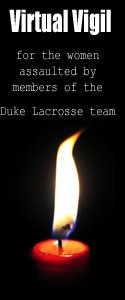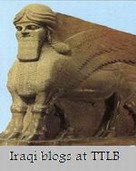why would there be peace when there is no justice?
From NYtimes.com
http://www.nytimes.com/2008/04
April 26, 2008
3 Detectives Acquitted in Bell Shooting
Three detectives were found not guilty Friday morning on all charges in the shooting death of Sean Bell, who died in a hail of 50 police bullets outside a club in Jamaica, Queens.
Justice Arthur J. Cooperman, who delivered the verdict in State Supreme Court, said many of the prosecution's witnesses, including Mr. Bell's friends and the two wounded victims, were simply not believable. "At times, the testimony of those witnesses just didn't make sense," he said.
While his decision prompted several supporters of Mr. Bell to storm out of the courtroom, and there were a few small scuffles outside the courthouse, by late morning there no suggestions of any broader unrest around the city. Mr. Bell's family members made no comment as they left, and they immediately drove to visit his grave at the Nassau Knolls Cemetery and Memorial Park in Port Washington.
The verdict comes 17 months to the day since the Nov. 25, 2006, shooting of Mr. Bell, 23, and his friends, Joseph Guzman and Trent Benefield, outside the Club Kalua in Jamaica, Queens, hours before Mr. Bell was to be married.
It was delivered in a packed courtroom and was heard by, among others, the slain man's parents and his fiancée. Mr. Bell's family sat silently as Justice Cooperman spoke from the bench. Behind them, a woman was heard to ask, "Did he just say, 'Not guilty?' " The three detectives — Gescard F. Isnora, Michael Oliver and Marc Cooper — were escorted out a side doorway as court adjourned.
The acquittals do not necessarily mean the officers' legal battles are over. Commissioner Raymond W. Kelly said the three men could still face disciplinary action from the Police Department, and that he had been asked to wait on any internal measures until the United States attorney's office determines whether or not it would pursue federal charges against them.
The seven-week trial, which ended April 14, was heard by Justice Cooperman after the defendants waived their right to a jury, a strategy some lawyers called risky at the time. But it clearly paid off.
Before rendering his verdict, Justice Cooperman ran through a narrative of the chilly November evening when Mr. Bell died, and concluded "the police response with respect to each defendant was not found to be criminal."
"The people have not proved beyond a reasonable doubt" that each defendant was not justified in shooting, the judge said, quickly adding that the men were not guilty of all of the eight counts, five felonies and three misdemeanors against them.
Roughly 30 court officers stood by, around the courtroom and in the aisles. At one point as he read, Justice Cooperman paused to insist that a crying baby be taken from the courtroom. Immediately a young woman who appeared to be among the Bell contingent got up and left with a baby.
"There are no winners in a trial like this," Mayor Michael R. Bloomberg said later. "An innocent man lost his life, a bride lost her groom, two daughters lost their father, and a mother and a father lost their son."
The mayor continued: "Judge Cooperman's responsibility, however, was to decide the case based on the evidence presented in the courtroom. America is a nation of laws, and though not everyone will agree with the verdicts and opinions issued by the courts, we accept their authority."
He added: "There will be opportunities for peaceful dissent and potentially for further legal recourse — those are the rights we enjoy in a democratic nation. We don't expect violence or law-breaking, nor is there any place for it."
A subdued Queens district attorney, Richard A. Brown, whose office prosecuted the case, said at a news conference: "Judge Cooperman discharged his responsibilities fairly and consciously under the law. I accept his verdict, and I urge all fair-minded individuals in this city to do the same." Commissioner Kelly, speaking in Brooklyn, would not comment on the verdict itself. But he did say that while there were no reports of unrest in response to the acquittals, the Police Department was ready should it occur.
"We have prepared, we have done some drills and some practice with appropriate units and personnel if there is any violence, but again, we don't anticipate violence," Mr. Kelly said. "There have been no problems. Obviously there will be some people who are disappointed with the verdict. We understand that."
Detectives Isnora and Oliver had faced the most charges: first- and second-degree manslaughter, with a possible sentence of 25 years in prison; felony assault, first and second degree; and a misdemeanor, reckless endangerment, with a possible one-year sentence. Detective Oliver also faced a second count of first-degree assault. Detective Cooper was charged only with two counts of reckless endangerment.
During the 26 days of testimony, the prosecution sought to show, with an array of 50 witnesses, that the shooting was the act of a frightened group of disorganized police officers who began their shift that night hoping to arrest a prostitute or two and, in suspecting Mr. Bell and his friends of possessing a gun, quickly got in over their heads.
"We ask police to risk their lives to protect ours," said an assistant district attorney, Charles A. Testagrossa, in his closing arguments. "Not to risk our lives to protect their own."
The defense, through weeks of often heated cross-examinations, their own witnesses and the words of the detectives themselves, portrayed the shooting as the tragic end to a nonetheless justified confrontation, with Detective Isnora having what it called solid reasons to believe he was the only thing standing between Mr. Bell's car and a drive-by shooting around the corner.
Several witnesses testified that they heard talk of guns in an argument between Mr. Bell and a stranger, Fabio Coicou, outside Kalua, an argument, the defense claimed, that was fueled by bravado and Mr. Bell's intoxicated state. Defense lawyers pointed their fingers at Mr. Guzman, who, they said, in shouting for Mr. Bell to drive away when Detective Isnora approached, may have instigated his death.
Detective Isnora told grand jurors last year that he clipped his badge to his collar and drew his gun, shouting, "Police! Don't move!" as he approached Mr. Bell's Nissan Altima.
Other witnesses, mostly friends of Mr. Bell, said they never heard shouts of "Police!" Mr. Guzman and Mr. Benefield testified that they had no idea that Detective Isnora was a police officer when he walked up with his gun drawn.





.jpg)







 -->
-->
0 Comments:
Post a Comment
<< Home